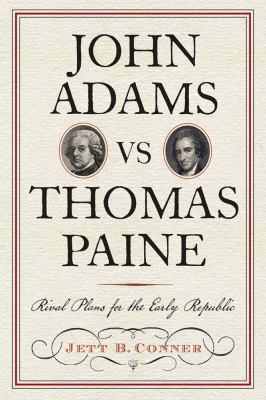
Book
|
John Adams vs. Thomas Paine : rival plans for the early republic
-- John Adams versus Thomas Paine
Container of (work):: Common sense
Copies
1 Total copies, 1 Copies are in,
0 Copies are out.
Title
John Adams vs. Thomas Paine : rival plans for the early republic -- John Adams versus Thomas Paine
Call No
JK116
Subjects
Paine, Thomas, 1737-1809.
Adams, John, 1735-1826.
Adams, John, 1735-1826. fast (OCoLC)fst00042531
Paine, Thomas, 1737-1809. fast (OCoLC)fst00031776
Constitutional history--United States.
Political science--United States--History--18th century.
Constitutional history.
Political science.
Politics and government.
United States--Politics and government--1783-1789.
United States.
History.
Adams, John, 1735-1826.
Adams, John, 1735-1826. fast (OCoLC)fst00042531
Paine, Thomas, 1737-1809. fast (OCoLC)fst00031776
Constitutional history--United States.
Political science--United States--History--18th century.
Constitutional history.
Political science.
Politics and government.
United States--Politics and government--1783-1789.
United States.
History.
Language
English
Published
Yardley, Pennsylvania : Westholme Publishing, LLC., [2018].
Publication Desc
xi, 156 pages : illustrations, portraits ;
ISBN
9781594162923
hardcover
LCCN
2018377827
Dimensions
24 cm.









